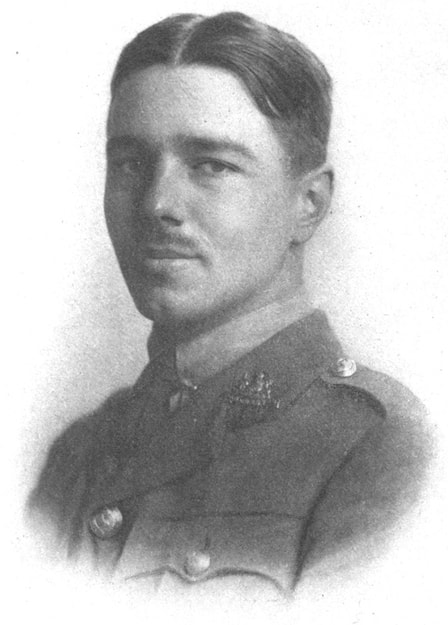"DULCE ET DECORUM EST" BY WILFRED OWEN
"Dulce et Decorum Est" is a war poem written by Wilfred Owen and is one of thee most significant and celebrated war poems of all time. Owen was British and served in World War I on the Western Front. He died in action on November 4th, 1918, just one week before the Armistice and the end of the war. The poem highlighted the experience of soldiers in the trenches of World War I and stood in contrast to the early excitement for war that occurred at the outbreak of war. The final line of the poem (Dulce et decorum est / Pro patria mori) is Latin and translates to: "It is sweet and honorable to die for one's country". Owen is referencing Roman poet Horace in his use of the line and is calling into question the notion of nationalism that drove so many young men to fight in the First World War.
|
"Dulce et Decorum Est"
Bent double, like old beggars under sacks, Knock-kneed, coughing like hags, we cursed through sludge, Till on the haunting flares we turned our backs, And towards our distant rest began to trudge. Men marched asleep. Many had lost their boots, But limped on, blood-shod. All went lame; all blind; Drunk with fatigue; deaf even to the hoots Of gas-shells dropping softly behind. Gas! GAS! Quick, boys!—An ecstasy of fumbling Fitting the clumsy helmets just in time, But someone still was yelling out and stumbling And flound’ring like a man in fire or lime.-- Dim through the misty panes and thick green light, As under a green sea, I saw him drowning. In all my dreams before my helpless sight, He plunges at me, guttering, choking, drowning. If in some smothering dreams, you too could pace Behind the wagon that we flung him in, And watch the white eyes writhing in his face, His hanging face, like a devil’s sick of sin; If you could hear, at every jolt, the blood Come gargling from the froth-corrupted lungs, Obscene as cancer, bitter as the cud Of vile, incurable sores on innocent tongues,-- My friend, you would not tell with such high zest To children ardent for some desperate glory, The old Lie: Dulce et decorum est Pro patria mori. |

